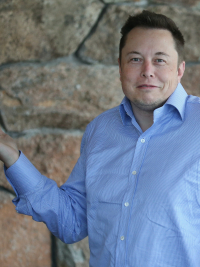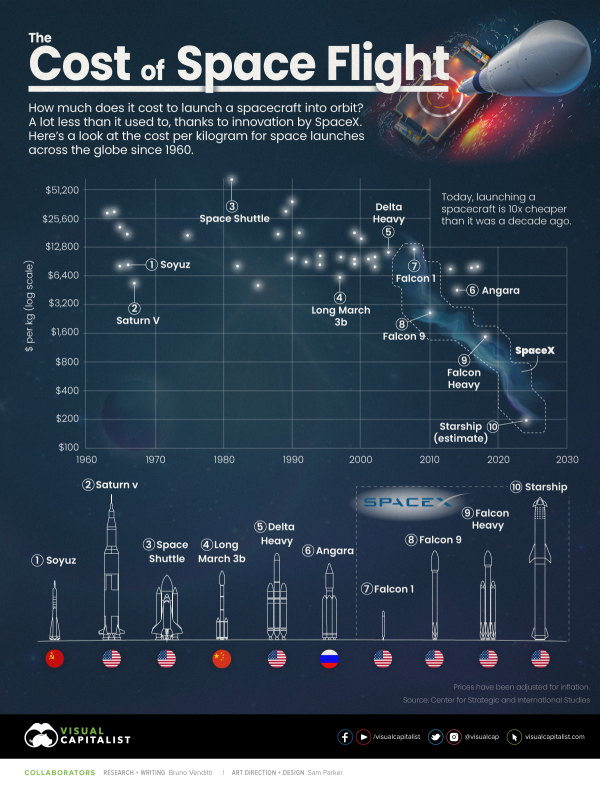When I talk about exponential technologies, I almost always end up discussing Tesla and SpaceX.
Elon Musk is an interesting guy.

Whether they end up doing everything they say they're going to, his companies massively accelerate the rate at which capabilities turn into products and platforms for future growth.
I recently shared the Elon quote: "Stop being patient and start asking yourself, how do I accomplish my 10-year plan in 6 months? You'll probably fail, but you'll be a lot further along than the person who simply accepted it was going to take 10 years!"
I don't know if he really said it. Nonetheless, it sounds like him … and I agree with the sentiment.
The New Space Race.
When I was young, the Space Race captured the heart and souls of Americans. But, for the past few decades, it was in the background. Recently, that has changed. The space race is getting hot again. Resources are pouring into this area, and SpaceX is leading the pack.
In 2018, I shared excitement that the boosters he used were reusable. Today, people are talking about how the newest ship, Starship, could render other rocket programs obsolete.
 via visualcapitalist
via visualcapitalist
While there's always room for competition, I can see many programs falling far behind if they haven't been focusing on reusability. Assuming Starship delivers on its promises (keeping in mind that Elon is often over-confident about his timeline), it will be cheaper and more versatile than anything out there.
I think it's naive to assume that other companies aren't doing interesting things … but by the time they release anything comparable, it's possible that SpaceX will already dominate the market.
The economics of reusable rocketry isn't yet cost-effective for most potential customers, but Musk is undoubtedly moving the needle in the right direction.
Hopefully, he can continue to raise the expectations of both consumers and producers. The results could be out-of-the-world.
Right now, suborbital trips from Virgin Galactic and Blue Origin cost between 250K to 500K per trip – and trips to actual orbit cost over $50 million.
However, I believe the cost of space travel – and space tourism – will drop radically within my lifetime.
It's hard to comprehend the scale of the universe and the scale of our potential … but that's what makes it worth exploring!
Even though we've only been talking about space travel, there are so many other exponential technologies that this applies to just as well.
Onwards!

Leave a Reply